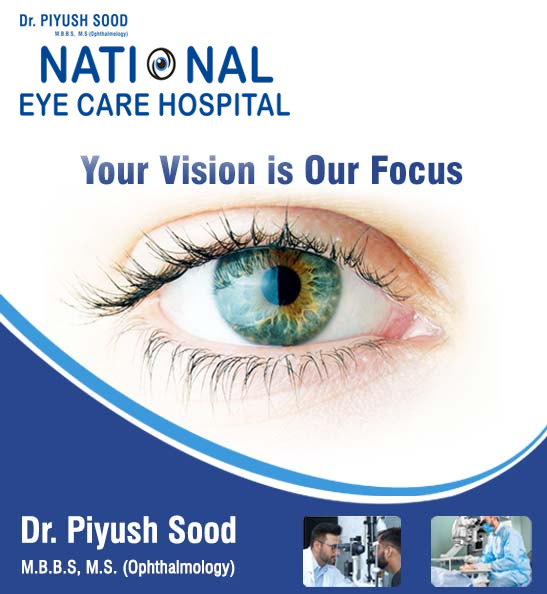Eye Facility in Andalusia: Premier Providers for Vision Treatment
Is Refractive Surgical Procedure Right for You? Factors to Take Into Consideration for Better Eyecare
In the realm of eye treatment, the decision to undertake refractive surgical treatment is a substantial one that demands thoughtful factor to consider. From the complexities of one's ocular health and wellness to the ins and outs of individual expectations and daily behaviors, each facet holds significance in the wider landscape of refractive surgical treatment candidateship.
Eye Health Evaluation
When considering refractive surgical procedure, a comprehensive eye health analysis is essential to evaluate the suitability of the procedure for each individual. andalusia pediatrics. This evaluation includes a collection of exams and tests carried out by an eye treatment professional to establish the overall health of the eyes, the existence of any type of underlying conditions, and the security of the refractive mistake
Throughout the evaluation, numerous aspects are taken into consideration, such as the person's medical history, present eye prescription, corneal thickness, student dimension, and tear film high quality. These assessments help to recognize any kind of contraindications to refractive surgical procedure, such as corneal problems, cataracts, or unattended eye infections. In addition, the analysis aids to take care of individual expectations pertaining to the prospective end results of the surgical treatment based on their special eye characteristics.
Inevitably, the eye health analysis is important in making sure the safety and security and performance of refractive surgery, as it offers valuable insights into the individual's eye health and wellness standing and aids determine the most ideal therapy choices for accomplishing ideal visual results. (neurologist andalusia)
Lifestyle Assessment
A thorough way of life evaluation is integral in establishing the suitability of refractive surgical procedure for a person's visual improvement requirements. Lifestyle aspects such as occupation, pastimes, and everyday activities play a critical function in the decision-making procedure concerning refractive surgical procedure.
In addition, way of living habits such as sports involvement, outdoor activities, or even skin care regimens can affect the recovery procedure and overall success of refractive surgical treatment. By conducting a detailed way of life evaluation, eye care professionals can customize their recommendations and therapy strategies to satisfy the distinct needs of each patient, inevitably leading to improved visual end results and contentment.
Assumption Positioning

Establishing practical expectations entails complete pre-operative conversations in between the client and the eye doctor. The doctor must transparently interact the potential threats, advantages, and restrictions of the procedure (andalusia pediatrics). Clients need to understand that while lots of individuals attain 20/20 vision or much better following refractive surgical procedure, some may still need glasses for specific activities like analysis or driving at night. Taking care of these assumptions helps protect against disappointment and dissatisfaction post-surgery, resulting in an extra positive total experience for the client.
Risk Evaluation

Elements that might enhance the danger of issues consist of age, specific clinical conditions like autoimmune illness, unpredictable official site vision prescription, thin corneas, and impractical person assumptions. In addition, choosing a skilled and experienced specialist, complying with pre and post-operative treatment instructions faithfully, and disclosing any type of relevant case history can aid mitigate dangers.
To lessen the likelihood of issues, eye doctors conduct complete pre-operative evaluations to determine any type of contraindications to surgical procedure. They additionally discuss the prospective dangers and benefits with people throughout the assessment process. By taking part in open communication and shared decision-making, both the eye doctor and the person can collaborate to establish if refractive surgery is the right choice based on individual risk profiles and preferred end results.
Consultation Importance
Thinking about the check this vital function of notified decision-making in evaluating dangers and potential complications in refractive surgery, the assessment process holds substantial relevance in leading people in the direction of ideal end results. Throughout the appointment, the eye doctor assesses the individual's eye health and wellness, refractive errors, and overall viability for surgical procedure. This initial analysis is vital in figuring out the most suitable treatment for every individual, thinking about aspects such as corneal density, pupil dimension, and existing eye conditions.
Moreover, the appointment works as an opportunity for people to discuss their assumptions, problems, and any type of questions they might have concerning the surgical procedure. Clear interaction between the surgeon and the patient is necessary to make sure reasonable assumptions and a complete understanding of the potential threats and benefits included.
Additionally, the appointment allows the doctor to discuss the various medical choices readily available, their respective results, and the post-operative treatment required. This thorough discussion equips people to make well-informed choices concerning their eye care, bring about better satisfaction and results post-surgery.
Verdict
In conclusion, individuals considering refractive surgical treatment needs to undertake a detailed eye health and wellness analysis, assess their way of life practices, straighten their expectations with possible outcomes, examine the connected risks, and focus on consultations with eye care experts. These elements play an important role in establishing the suitability of refractive surgery for each individual, making certain optimum outcomes and fulfillment with the treatment.
Patients considering refractive surgical treatment frequently have high assumptions regarding the outcomes, expecting excellent vision without the requirement for glasses or contact lenses. While refractive surgical treatment can greatly improve vision and reduce dependency on aesthetic help, it is important for clients to recognize that outcomes might differ based on private aspects such as the degree of refractive mistake, corneal density, and total eye health.
By engaging in open interaction and he said shared decision-making, both the person and the ophthalmologist can function with each other to figure out if refractive surgical treatment is the right selection based on private danger profiles and desired end results.
Thinking about the crucial role of notified decision-making in evaluating risks and prospective problems in refractive surgery, the appointment process holds significant value in directing people towards optimum results. Throughout the examination, the ophthalmologist examines the patient's eye wellness, refractive errors, and general suitability for surgical treatment.